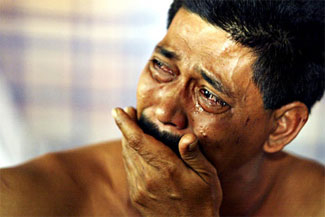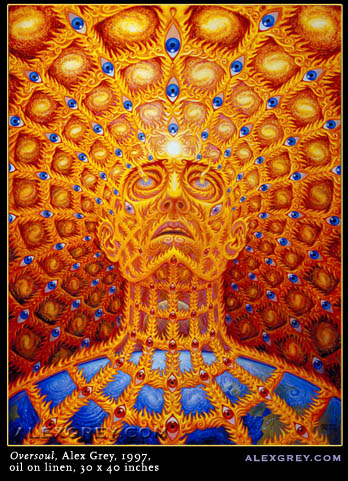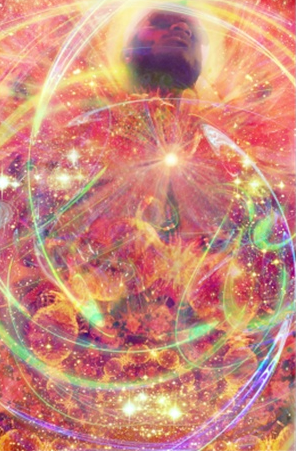Is it possible that our emotions are the most potent form of creativity ever?
Tonight I heard a young girl crying. She sounded like a toddler. Her voice was raw, powerful, and uninhibited. After a few minutes of screaming, I could hear another voice. It sounded like the mother, a woman obviously older. She had lost her temper and sounded angry and matched the volume of the young girls voice. It seemed she was trying to stop the child from crying.
I thought about it as I heard that little child crying, she may have been two blocks away. She certainly wasn’t holding back her feelings. 
In the year and a half I have lived in this neighbourhood I have rarely heard an adult cry like that. It seemed strange to me.
I have at times felt like that girl, yet I haven’t given myself the ultimate freedom to simply unbag such emotions as freely as she did.
Yet, listening to any child who emotionally expresses themselves can be difficult. It is easy to understand why any parent or carer would want them to stop. It’s uncomfortable. But what are we doing when we suppress or undermine these feelings? What happens when we drive these emotions out of our lives?
Where have we placed our free reigning emotions? I was feeling into this as I heard that young girl crying with that voice that did not betray her heart.
It was authentic. I began to ponder as to what place feelings have in relationship to creativity. Is it possible that we become stifled when there is such a narrow margin for being human? It seems so constrictive to have to limit the expression of the heart to such narrow margins, where being normal must be contained within shallow parameters.
So how have our human emotional landscapes become so marginalised?
According to traditional psychiatric terminology an adult screaming uncontrollably like the child I heard would easily be classified as being excessively emotional and could lead to a diagnosis of mental illness particularly if it were to ‘recur’ on several occasions.
Author Allan V. Horwitz and Jerome C. published a book called The Loss of Sadness: How Society Transformed Normal Sorrow. The book shows the flaws in what is known as the DSM-IV (which stands for the Diagnostic and Statistical Manual Volume IV). The DSM-IV is used by psychiatrists to diagnose patients deemed to be mentally ill. The book; The Loss of Sadness states “that the psychiatric profession has understood and reclassified normal human sadness as largely an abnormal experience”
 Traditional psychiatry, the backbone of mental health institutions worldwide still lacks clear definition of what is termed as normal psychological behaviour. Attempt a Google search on Normal Psychological Behaviour and you will find sites appear on Psychological-Disorder, which propose medication and counselling.
Traditional psychiatry, the backbone of mental health institutions worldwide still lacks clear definition of what is termed as normal psychological behaviour. Attempt a Google search on Normal Psychological Behaviour and you will find sites appear on Psychological-Disorder, which propose medication and counselling.
So what happened to our humanity to get to a point where our emotional functioning is socially sanctioned to a few limited emotions? The healthy child who expresses her emotions must surely be supported and heard.
The adult who is grieving the loss of her loved one must surely gain access to the depth of her heart and soul without being limited to a few ‘comfortable’ emotions.
I believe that our emotions can help us access not only to the full breadth and width of our creativity but also to our ability to find and maintain gainful employment doing what we truly love. Reclaiming our ability to feel and express constructively our emotions is healthy.
Try this, next time someone asks you, “How are you?” wait a moment, before you respond on auto-pilot, check in and ask for yourself. Answering the question is not as important as feeling it.
 You don’t have to know, but it’s a good idea to feel and check. How are you really?
You don’t have to know, but it’s a good idea to feel and check. How are you really?
There are no right or wrong feelings. Nor are there right or wrong answers. Feelings are authentic, especially when we don’t expect ourselves to feel any particular way.
From this place we harness creativity. We can connect with the a powerful Creator energy within. We can become the author of our own experience. We do this by owning our every experience fully. Which becomes the basis of our artistic license, an expression unique in our every breath. How-so-ever we choose to create, let the feelings and emotions be a mark of our expressive soul upon this earth. A unique signature that cannot be artificially replicated.
If it is deep pain, or joy, let it be beautifully and remarkably honoured and expressed authentically. In the best way we feel our hearts speaking and singing our own definition of truth. Not as someone else might see it. There are no confines or limits to what our expression needs. Pick up a drum, guitar, flute, a piece of paper, turn on the stereo, dance! Jump in the ocean and surf, swim, it might even be simply walking. Build a sand castle. Throw some clay.
In this way expression allows a flow, it does not block energy. For emotion is energy. When we doubt and we hesitate we impede the flow. We disconnect from who we are and from what life is. When we connect and we honour we affirm and we allow. We embrace and we harness the power of creativity that is imbued in all things.
Whatever it is that is moving through you, let your body move and be the beacon of your own heart as you communicate what needs to move through you. There is no right or wrong. Only genuine feelings.
Be curious and attentive to what you feel without labelling the feelings.
Reclaim the integrity of your emotions, they will give you access to your wholeness. This wholeness is what brings unparalleled peace. It is what remedies addiction and ends avoidance strategies.
Most masterpieces are created when the rawest of emotions have been expressed authentically.
What masterpiece is awaiting you?

Recent Comments